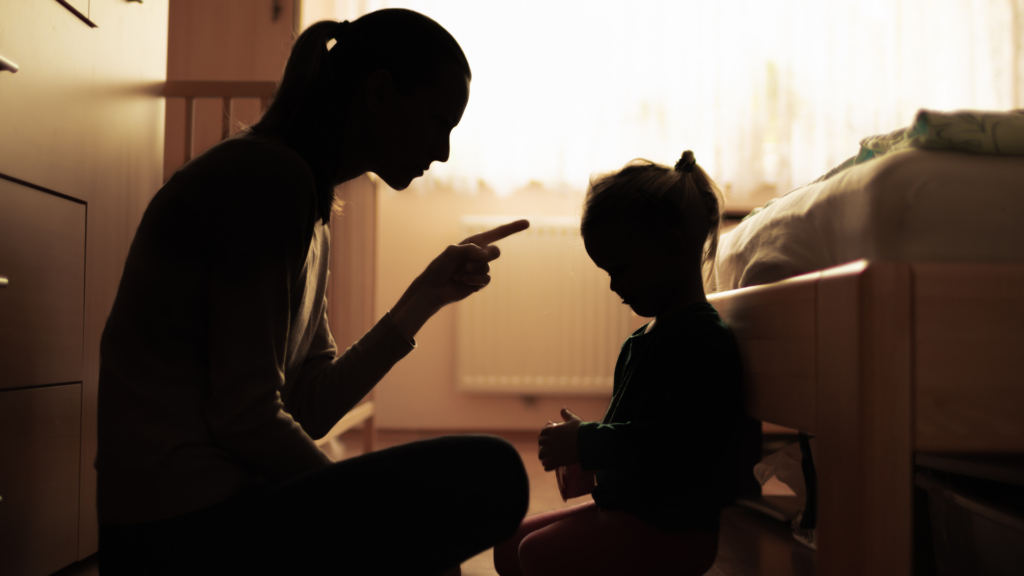I always knew parenting would come with its challenges, but nothing prepared me for the moments when my toddler pushed me to my breaking point. The tantrums, the defiance, the spilled milk (both literally and figuratively)—they all tested my patience in ways I never imagined. It quickly became clear – disciplining your children is one of the hardest parts of being a parent – and it wasn’t going away.
In those moments, I heard my parents’ voices echoing in my head. Their sharp words, the silent treatment, or that one instance when I got “the belt.” Growing up, I promised myself I’d never discipline my kids the way they disciplined me. Yet, here I was, about to yell or walk away in frustration.
It hit me hard: If I didn’t pause and rethink my approach, I might repeat the cycle that led to my estranged relationship with my own parents.
Reflecting on the Discipline We Experienced
Have you ever stopped to ask yourself: How did the way you were disciplined as a child shape your relationship with your parents? For me, the answer was painful.
As a kid, I felt more fear than trust. The silent treatment after I messed up left me anxious for days. Physical punishment didn’t teach me why my actions were wrong—it just taught me how to avoid getting caught. And when my parents avoided eye contact during tough conversations, I felt invisible.
When my child looks at me now, I wonder: What message am I sending? Am I building a foundation of trust and understanding—or planting seeds of fear and resentment?
Why Disciplining Your Children Matters
Discipline isn’t just about stopping bad behavior. It’s about teaching your child how to make better choices while strengthening your connection.
But let’s be honest: Not all discipline methods achieve this. Some tactics can cause long-term harm, like:
- The Silent Treatment: This makes kids feel ignored, amplifying feelings of rejection and isolation.
- Physical Force: Studies show spanking and similar methods can lead to lower self-esteem and increased aggression.
- Avoiding Eye Contact: A simple yet harmful gesture that can make kids feel unworthy of attention or affection.
Ask yourself: Are the discipline tactics you’re using teaching lessons—or creating scars?
How I’m Breaking the Cycle
Changing my approach wasn’t easy. I had to unlearn what felt instinctive and replace it with new habits that aligned with the parent I wanted to be.
One day, my toddler spilled juice all over the floor I had just cleaned. My first impulse? To yell. Instead, I took a deep breath, got down on their level, and said: “Mistakes happen. Let’s clean this up together.”
That moment shifted everything for me. Here’s what’s working for us:
1. Setting Clear Boundaries
Kids thrive on structure. Now, I make sure my child knows what’s expected and the natural consequences of their choices.
2. Collaborating on Solutions
After a meltdown, I ask: “What can we do next time to make this easier for both of us?” It’s amazing how insightful kids can be when we give them a voice.
3. Using Natural Consequences
Instead of punishment, I let natural consequences teach the lesson. When my child refused to wear their jacket on a chilly day, they quickly learned why it was important without me saying, “I told you so.”
4. Modeling Calm Behavior
When I lose my cool, I show my child how to recover by apologizing and explaining my feelings. It’s a powerful way to teach emotional regulation.
The Long-Term Goal
Parenting is messy, emotional, and full of mistakes—but isn’t that kind of the point? We’re all learning as we go.
When I look at my child now, I remind myself of the big picture. My discipline choices today aren’t just about correcting behavior. They’re about building trust and teaching values that will shape their future.
I don’t want my child to remember me as the parent who yelled or ignored them. I want them to remember me as someone who guided them with patience, love, and understanding—even on the hard days.
A Note for Fellow Parents
If you’ve ever lost your temper or relied on tactics you regret, know this: You’re not alone.
Ask yourself: What kind of relationship do I want with my child in 10 years? Am I using discipline to teach and connect—or to control?
Change takes time, but every small step matters. When we prioritize connection over correction, we create a bond that lasts a lifetime.



